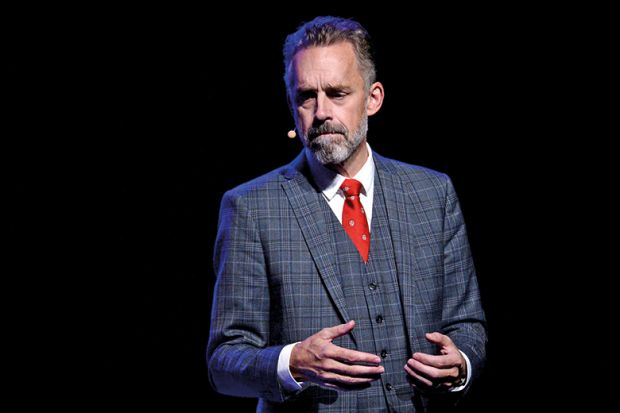The prospect of having Jordan Peterson at the University of Cambridge on a visiting fellowship proved unpalatable for the institution’s leaders. But the University of Toronto is standing behind its high-profile psychology professor, acknowledging his rights to free expression as a tenured faculty member.
“Jordan Peterson remains a professor with tenure at the University of Toronto,” a university spokeswoman replied when asked to comment on the furore over Cambridge’s decision to rescind the fellowship offer.
Professor Peterson has become a right-wing celebrity largely through books and YouTube videos, which have attracted tens of millions of views, in which he bemoans the decline of Christianity in society and preaches about the virtues of traditional male dominance.
His record includes rejecting non-binary gender choices, arguing that women secretly welcome male domination, and suggesting that “enforced monogamy” could have prevented the April 2018 killing of 10 people in Toronto by a man who was “angry at God because women were rejecting him”.
Professor Peterson’s invitation to take up a two-month unpaid fellowship at Cambridge grew, he said, from a visit in November during which he was welcomed by numerous academics and spoke before a capacity audience at the student-run Cambridge Union.
That warm reception, Professor Peterson wrote, suggested that “a number of Cambridge students are very interested in what I have to say, and might well regard my visit as a valuable contribution to the university”.
But in the posting to his own website, Professor Peterson said the fellowship invitation had been rescinded by “conspiratorial, authoritarian and cowardly bureaucrats” who identified neither themselves nor their reasons.
Five days later, Cambridge issued a statement from its vice-chancellor, Stephen Toope, saying that the university revoked the offer after learning of a photo taken in February in New Zealand in which Professor Peterson posed with a man wearing an anti-Islamic T-shirt.
Professor Peterson’s proposed fellowship had been considered by Cambridge’s Faculty of Divinity “in the normal way, and was granted on an academic basis”, Professor Toope wrote. But, he said, the university believes in “balancing academic freedom with respect for members of our community”.
A few weeks after Professor Peterson posed for the photo, a gunman killed 50 people in two mosques in Christchurch.
Professor Peterson’s skill in commanding attention, his critics contend, suggests the spreading into higher education of a wider political trend, especially on the right, in which authority and attention are driven more by celebrity and commotion than by reason and analysis.
That is particularly galling, said Jennifer Garrison, an associate professor of English at St Mary’s University in Calgary, given that universities already are struggling to give sufficient emphasis to quality teaching.
While Professor Peterson is protected by tenure at Toronto, Dr Garrison said, universities across North America are increasingly turning to low-paid adjuncts to provide much of the actual teaching.
Beyond all the harm he causes with his hostile rhetoric, Dr Garrison said, Professor Peterson was a symbol of “this group of professors that we sort of classify as geniuses who we want to have around in universities”. It is a major mistake in priorities, argued Dr Garrison, the faculty association president at St Mary’s.
“We need to start valuing the academy more,” she said, “so that we’re not looking for celebrities – we’re looking for scholarship.”
后记
Print headline: After Cambridge rejection, Toronto sticks with Peterson




